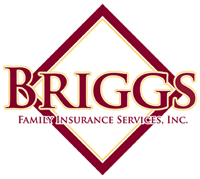General Insurance Questions
- Protects your assets against attachment as a result of a court award.
- Provides for cost of defense when you are sued.
- Allows you to purchase such high value items as a car or a home by insuring the collateral on behalf of the financial institution that lent you the money.
- Provides financial security for your family in the event of your death.
- Provides for the health care of you and your family through systematic payments.
- Allows you to save for retirement while deferring interest payments to a time when your income is lower, thus reducing your tax payments.
- Allows you to remain financially solvent when you’re ill and can’t work.
- Claims activity including such costs as medical care, auto body repair, construction, legal defense, jury awards, claims adjustment, and insurance fraud.
- Overhead including rent, utilities, employee salaries and benefits, office supplies, equipment, and furniture.
- Investment income.
Auto Insurance
Additionally, the time and efficiency of police response and law enforcement, local road and traffic conditions, and the quality of local medical services can affect regional insurance rates. Some insurers even factor in the litigation rates in a given area (how many lawsuits are filed, go to trial, out of court settlements, and their amounts).
By law, all states offer UM and UIM policies, including no-fault states. In fact, some states require all motorists to carry this coverage in order to gain protection from inadequate insurance coverage of other drivers.
What happens when I loan my car to someone? Is that person covered by my policy? Am I still covered?
Yes. Liability and coverage for Physical Damage (i.e. Comprehensive and Collision) always follow your car. Plus, if the driver of your car is insured, his/her policy will also be available to cover the cost of damages and injuries.
The same rules apply when you borrow someone else’s vehicle; your own insurance follows you no matter whose car you’re driving. But the vehicle owner’s policy is the key coverage in the event of an accident.
Homeowner’s Insurance
Property insurance covers your structures and possessions. Personal Liability, as its name implies, means you’re legally obligated to pay money to another person for actions caused by you, your family, or your property. That liability extends to medical payments to others for injuries caused by you or your family.
One other exclusion that can be costly is the Ordinance or Law exclusion. Building codes established by governmental bodies that drive up the cost of rebuilding or repairing after a loss occurs might not be covered by your insurance policy. Thus, if you discover when replacing damaged property that current law demands higher grade or more expensive materials than those you’re replacing, the new materials might not be covered fully.


